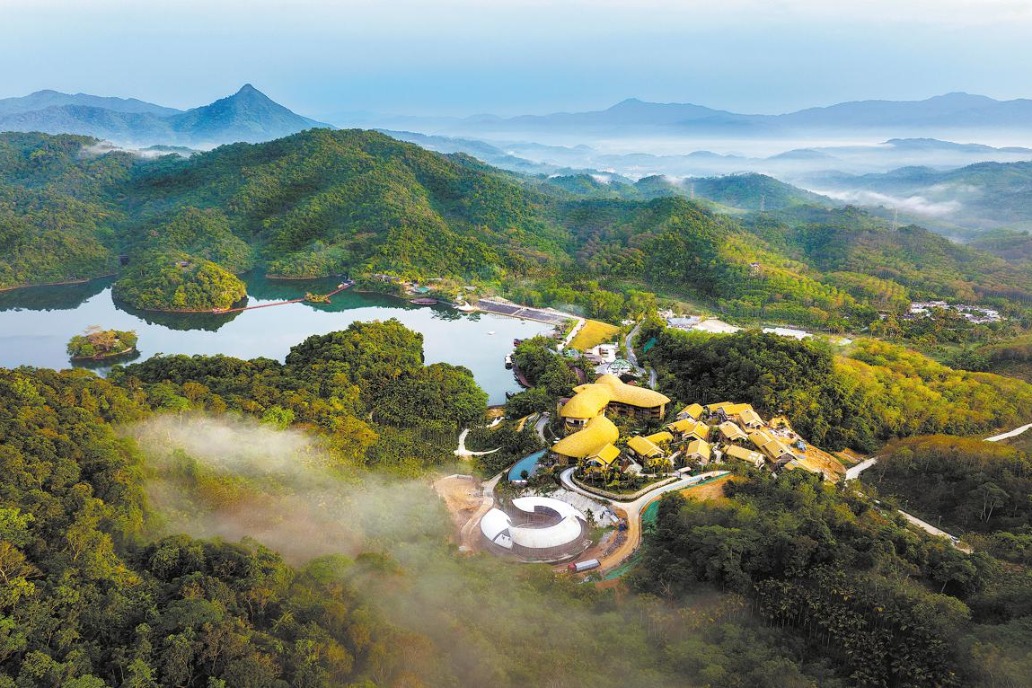Hegseth will recognize US' limits in its bid to contain China via regional division: China Daily editorial
chinadaily.com.cn | Updated: 2025-03-27 20:57

Having already visited Europe, where he openly declared the United States' attention was focused on the Asia-Pacific and underscored Washington's singular fixation on China as a strategic competitor, US Secretary of Defense Pete Hegseth has embarked on a visit to Hawaii, Guam, the Philippines and Japan.
This marks Hegseth's first official trip to the "Indo-Pacific" since assuming office, and the itinerary, conspicuously omitting the Republic of Korea, reflects Washington's deepening obsession with containing China. By prioritizing the Philippines — a nation embroiled in maritime disputes with China — over the ROK, the US has effectively signaled its intent to undermine regional stability by escalating confrontations in the South China and East China seas, in a bid to keep China on the back foot.
Hegseth's exclusion of the ROK, ostensibly due to its "uncertain domestic politics", cannot mask the true motive: refocusing Washington's "Indo-Pacific" strategy on the maritime containment of China. The inclusion of the Philippines, a nation the US has encouraged to militarize its stance in the South China Sea, exposes a deliberate effort to transform the Philippines into a frontline proxy.
The US' rhetoric about strengthening alliances for a "free and open Indo-Pacific" is a thinly veiled justification for rallying its partners to serve US geopolitical interests. By amplifying the Philippines' baseless claims and reinforcing its military presence in Guam and Japan, the US seeks to create a lattice of pressure points against China.
The US has long exploited historical complexities and territorial disputes to manipulate regional actors, most recently in Ukraine. Japan's role as a hub for US military operations and its recent alignment with NATO's expansion into Asia exemplify its subservience to Washington's agenda. Meanwhile, the Philippines, under the current administration, has abandoned its previous commitments to dialogue with China, opting instead for reckless provocations — such as encroachments into Chinese waters — emboldened by Washington's encouragement. The previous US administration's sudden focus on the Philippines and prominent positioning of Japan in its "Indo-Pacific" strategy was less about partnership and more about manufacturing crises to justify increasing the US military footprint in the region.
But while its potential to destabilize the region is the downside of his visit, Hegseth's visit does have a potential upside. His superficial grasp of the region — evidenced by his inability to articulate basic facts about the Association of Southeast Asian Nations, such as the number of members, during his nomination hearing — reveals the transactional and insincere nature of US engagement. While the US' "Indo-Pacific" strategy is in reality the US prioritizing its own interests over the well-being of the Asia-Pacific by means of a destabilizing campaign that perpetuates division and dominance, there is always the hope that Hegseth might take note of other realities in the region from which the US could benefit.
Rather than a divisive and disruptive approach, he might take heed of the distinctive "ASEAN way", which emphasizes consensus, noninterference and flexibility instead of confrontation and coercion.
Given the dynamism of the region, which is based on its stability and cooperative relations, the US would unquestionably reap greater benefits from more constructive engagement with it.
And as Tokyo will no doubt inform him, it is increasing its engagement with Beijing as there is only so far Japan can go in participating in the US' disruptive agenda, as regional peace and stability are a matter of survival for it, given its reliance on energy imports and maritime trade.
The peace and stability in Asia has been hard-won and it requires the sustained efforts of regional countries to maintain. The US would gain from a change of approach that forgoes its conflict-risking militarization of the region in favor of a more constructive approach that seeks to foster cooperation rather than escalating tensions. By prioritizing diplomatic engagement over military posturing, it could encourage the strengthening of regional partnerships focusing on the environment, trade and maritime safety, and support economic alternatives to resource competition, such as the joint oil/gas exploration agreements that have been proposed.
China remains committed to fostering mutual development and trust with its neighbors, and its growing ability to manage complex situations — coupled with its strategic composure — ensures that any external attempts to derail its development will be met with firm, proportionate responses.
By continuing to try and exploit the maritime disputes between China and some of its neighbors, the US can only expect to see both its image and clout in the region decline.
























